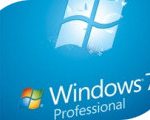Have high-end Macs made Apple the preferred choice of snobs?

Just released figures from research firm NPD seem to suggest that Apple has a firm handle on the rich and famous.
In June, Apple owned 91 percent of the so-called premium computer market -- machines costing $1,000 and up. That's up three points over May's figures. Way back in early 2008, it was a mere 66 percent. Apple is clearly doing something right to attract the well-heeled.
Live long, Prosper...and crunch those numbers

This episode of Recovery is brought to you -- literally -- by the free Wi-Fi at the Sacramento Amtrak station. Isn't it funny how the train station can offer it but most airports don't. Funny. Ha.
I spent some time this week bopping around Prosper, the peer-to-peer lending site. I'd signed up with them several years back, intending to test the system for a write-up at Another Publication. I liked what I saw so much so that I stuck with it until economic events last year caused the service to go temporarily dormant. They're back now and I thought I'd see how my people were doing.
Dying for an iPhone: Questions raised by the Foxconn suicide

If you've got your cell phone or smart phone handy, I'd like to ask you to pull it out of your pocket or off your desk and give it a long, hard look.
By any definition, it's a pretty impressive piece of technology. You can call anywhere in the world, surf the Web, IM your parents, and even orchestrate meetings with far-flung team members you'd rather not meet in person. When you're done working, toss a stereo Bluetooth headset on and take in a movie without the hassle of overpriced theatre popcorn or whining kids kicking the back of your seat.
The real meaning behind Microsoft's unexpected Linux kernel drop

The most vivid headline on yesterday's news that Microsoft is releasing various Linux kernel modules under the GNU Public License may not have been the most accurate. That would be InfoWorld's "Linux slips into Microsoft's warm, deadly embrace," which cast an agreeable horror-movie glow over the proceedings.
Fun stuff, but despite Randall C. Kennedy's fine and impassioned argument that this is all an embrace-and-extend plot to allow Hyper-V to feast on the blood of the open-source movement, that's probably not where things are heading.
Could Popfly's pop out be game over for Microsoft?

There's a strange foreshadowing in Microsoft naming its social mashup service Popfly. In baseball, pop fly is a ball hit straight up that comes straight down, usually into the catcher's mitt and to an out. Popfly is out, with Microsoft's decision to close down the service on August 24th.
I'm really bugged about the shutdown, because of what it represents:
A salute to a true managing editor: Walter Cronkite (1916-2009)

He would insist on the truth, so I won't embellish anything here: Walter Cronkite was not my hero growing up, but the guy playing for what I -- a boy trying to make sense of my world -- perceived as the other team. My hero was David Brinkley, one of only two other men I knew of besides myself (the other being Chet Huntley) who could command my mother's attention. As a toddler in the 1960s, my assessment of the true value of that feat alone may have actually directed me toward a career in journalism. So while my classmates' idea of a rivalry was between the Sooners and the Longhorns, or between the Beatles and the Monkees, the rivalry that gave me cause for excitement every day was between NBC News and CBS News. And Walter was the competition.
Later, as I truly studied electronic journalism, I would understand what it was that Cronkite had created and had contributed to the craft, early enough for me to use it in forging my career. Unlike most people in this business who wear the moniker "Managing Editor," Cronkite not only steered the ship of his news organization, but developed the principles by which a complete news product is expertly produced. He created the system of priorities by which news "packages" were conceived, organized, and delivered. And he would be the one reorganizing and reconfiguring that sequence, sometimes as late as seconds before air time, and on certain days literally in-between commercials. He saw his broadcast as a "front page," and he adapted it to the importance of the moment. He created the system of flexibility that should, if we were smart, be applied to the business of Internet journalism -- he knew the weights and measures that were necessary to obtain a balance between the stories people needed to know, and the stories people wanted to know.
Microsoft should use Twitter data theft as hosted apps marketing FUD

Microsoft couldn't pay for counter marketing as good this. Twitter has officially admitted to a security breach, via personal e-mail account, and the pilfering of confidential documents stored in Google Apps. Can you say, "On-premise computing?"
Based on the cycle of renewals, an unusually large number of Microsoft volume-licensing subscribers must re-up by July 31 or not at all. Given the econolypse's impact on IT spending and, because of layoffs, number of seats to renew, those license renewals may come harder than ever. Then there are all those newfangled hosted applications, some from Microsoft, and Google's push into the enterprise with Google Apps Sync for Microsoft Outlook.
In the Palm of iTunes' Hand: Why won't Apple play nice?
Microsoft laughs off Apple legal request to kill TV ads

Apple is a company known for good design -- meaning also that appearances matter beyond just the products. Apple's legal department may have done something that appears simply laughable. Even if untrue, it's a helluva good story -- and a Microsoft executive tells it. Well.
Apple has a reputation for issuing legal take-down notices. The practice is a byproduct of the company's penchant for secrecy. Many Websites posting leaked Apple product pics have felt the burning ire of Apple lawyers. Today, at Microsoft's annual partner conference, COO Kevin Turner described receiving what could be characterized as the ultimate take-down notice.
Steve Ballmer's denial can't stop change from coming

"On résiste à l'invasion des armées; on ne résiste pas à l'invasion des idées." -- Victor Hugo
Literal translation: "One withstands the invasion of armies; one does not withstand the invasion of ideas."
Often paraphrased: "Nothing is as powerful as an idea whose time has come."
Web-based operating system/platform is an idea whose time has come, whether or not Google succeeds with Chrome OS. Microsoft CEO Steve Ballmer can deny it. He can march his Office 2010 and Windows 7 armies into the enterprise. But, elsewhere, the Web platform is turning from idea to practical reality -- in large part because of mobile handsets.
Windows 7 E: Microsoft's sensible response to Europe

Yesterday, in a Windows 7 for Developers blog post, Microsoft revealed more details about the special version of Windows 7 for the European Union. The company isn't ripping out Internet Explorer 8 so much as using the "Turn Windows on or off" tool to disable the browser. For all practical purposes, IE8 won't be available to end users or third-party applications. However, Internet Web Applications components will remain.
About 30 days ago, in a brilliant solution to a troubling problem, Microsoft announced plans to release an "E" version of Windows 7 sans the browser. Windows 7 E will be exclusively distributed in the EU, where the European Competition Commission is nearly ready to officially rule that Microsoft's bundling Internet Explorer with Windows is an anticompetitive act. The European Commission is currently entertaining remedies, which are rumored to include a proposal for presenting Windows users with a choice of browsers to set as default during installation.
Bing and Chrome OS: What if it's all bluster?

In the final scenes of Twilight's Last Gleaming (1977), which history may yet restore to its rightful place as one of the dumbest movies ever made, the President of the United States (Charles Durning) learns from a renegade general-turned-prison escapee (Burt Lancaster) that the whole point of the Vietnam War was a geopolitical bluster intended to convince the Soviet Union that the US was crazy enough to engage in World War III if it had to. After the President is told this Earth-shattering information by his kidnapper, his own cabinet conspire to assassinate him to prevent the information from being revealed in a press conference. This despite the fact that the real world was already entitled to The Pentagon Papers in paperback for several years, though readers clearly preferred Jaws and The Exorcist.
It is no "eyes-only" confidential secret that bluster is a very effective political and marketing tool at the disposal of anyone who can afford to use it. So you're safe from any assassination attempts from the likes of Joseph Cotten or Richard Widmark. Meanwhile, anyone reading Betanews on a daily basis over the last few weeks might get the impression that World War III is about to be triggered by the volatile mix of Google and Microsoft, or that at least some of us here who may have stayed up too late to watch Twilight's Last Gleaming on AMC may think so.
Who says Microsoft has turned the corner?

It's unusual for me to disagree with Microsoft's most infamous, anonymous employee blogger. Mini-Microsoft says that "Microsoft has turned the corner." In his dreams, or perhaps some Xbox 360 role-playing game, Microsoft has turned the corner and found a hallway and door to the outside sun. But in this universe, if Microsoft has turned the corner, it's into a wall.
Microsoft has got big problems for which there are no easy solutions; I'll get to those later in the post. Mini rightly identifies some things that Microsoft is doing right, and they are certainly commendable. They're just not enough. I'll give his shortlist with my perspective:
Is Office 2010 Oh-So 2005?

Last night, I watched the 11 Microsoft videos introducing various Office 2010, Office Mobile and Office Web Applications features. I kept thinking: Microsoft is living in the past. The reaction was about the same for each video. Office 2010 will come five years late.
The past ultimately derives from Microsoft's application stack -- Office-Windows-Windows Server -- that the company desperately is trying to preserve. The new stack goes from mobile device to the cloud, which Microsoft cautiously embraces for fear of upsetting lucrative revenue streams tied to its established applications stack.
Chrome OS is futureware, not vaporware

Many of the pundits claiming that Chrome OS will threaten Windows give the wrong reasons. They're not seeing the big picture. Likewise, those people asserting that Chrome OS is no threat to Windows are wrong altogether -- same can be said of those people calling the operating system vaporware. Google has got the right approach at the right time.
Microsoft certainly isn't doomed because of the Google operating system. But Microsoft is in a big heap of trouble, because:
Recent Headlines
Most Commented Stories
BetaNews, your source for breaking tech news, reviews, and in-depth reporting since 1998.
© 1998-2025 BetaNews, Inc. All Rights Reserved. About Us - Privacy Policy - Cookie Policy - Sitemap.
